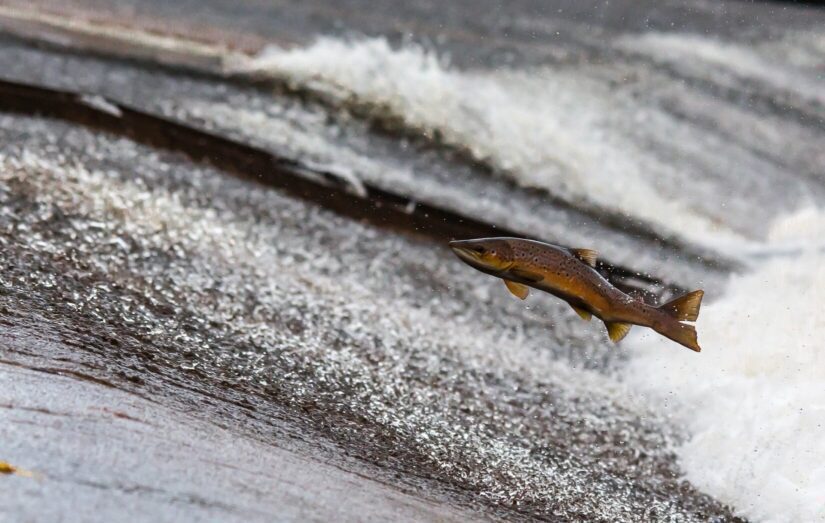The public comment period for Canada’s first Code of Practice for farmed fish is now open, and will remain open until January 7. Be sure to submit your feedback on the draft Code to ensure that the welfare of farmed fish is protected! Here are a few key points we hope you convey along with your opinions:
- Fish can feel pain, experience fear and are capable of suffering. See our position statement on Fish and Aquatic Invertebrate Welfare for more details.
- Lighting – all sites must transition to lighting systems that gradually change light intensity, so they do not startle fish. Fish must be allowed to have natural dark periods, and must not be housed with lights on for 24 hours a day.
- Biodensity/overcrowding – action should be taken at the first signs of poor welfare or weight loss.
- Handling – any time fish are handled, they should be kept out of water for the shortest time possible. There should be a requirement for maximum time out of water for all handling procedures.
- Slaughter methods – ice slurry slaughter should be phased out as soon as possible and manually applied blunt force trauma should be avoided
- Planning and arranging transportation – there needs to be a maximum transport time and fish need enough space during transport.
- Feed withdrawal – there needs to be a requirement stating how long fish can go without being fed.
Canada’s first Code of Practice for farmed fish
Original story: October 7, 2020
We know that fish are sentient and have the ability to feel pain, fear and stress. That is why it is so important to tell the National Farm Animal Care Council (NFACC) that fish welfare must come first on farms. NFACC develops the Codes of Practice, which are guidelines for the care of farm animals and serve as our national understanding of animal care requirements.

With your support, NFACC heard our voices and is currently developing Canada’s first Code of Practice for the Care and Handling of Farmed Salmonids (salmon, trout, char). The Code development process began with a public survey, which allowed the public to submit their fish welfare concerns. This helps the Code development committee understand the kinds of issues people wish to see considered in the Code.
In this preliminary survey, 83% of respondents live in B.C., which shows that we really care about fish! Thanks to your submissions, the Code will address key topics such as sentience in fish, sea lice, feed withdrawal, stocking density, water quality, lighting, genetics and slaughter methods.
The draft Code will be released for public comment in November of this year, so stay tuned to take action and continue to show your support for fish! Subscribe to our Action Alerts to be the first to know when the comment period opens.
More resources:
Subscribe to FarmSense newsletter
FarmSense is delivered four times a year and includes news about farm animal welfare, research and updates on what the BC SPCA is doing to help further farm animal welfare in Canada
